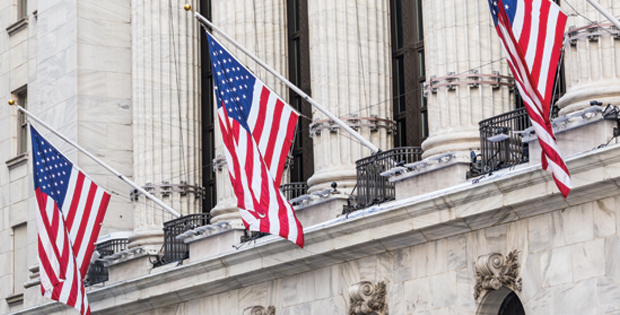by Scott Glasser, Franklin Templeton Investments
Here are some highlights from their conversation today:
“Probably the markets were one of the better predictors of what was going to happen [with the US election], certainly even better than the polls…There does seem to be some certainty that there’s not going to be a big change in policy one way or the other, regardless of who’s the president I think that’s probably why the market’s somewhat positive.” – Stephen Dover
-
- “While history is great and history is a guide, what we’re going through in terms of the markets and the divisions in the country, something that’s a little bit different from what we’ve seen in the past.” – Scott Glasser
- “Probably the [US] election is not going to be the biggest factor on what happens in the markets over the next coming few months. It’s going to much more likely be the path of the COVID.” – Stephen Dover
- “I think it’s pretty clear that we’re going to have some level of stimulus that that then is approved. And so that’s positive for equities in general. I think that there is continued hope and scientific evidence that we’re proceeding with a [COVID-19] vaccine. – Scott Glasser
- “If there’s anything that I would hope investors would learn from this last week or two, is that it’s very hard to make…decisions based on elections. And certainly we can’t trust the polls. We really try to stick to the fundamentals.” – Stephen Dover
Transcript
Katie Klingensmith: Stephen, I just want to start with you. I mean, we clearly don’t know all the outcomes of the presidential race or even, you know, everything in the Senate and the House. How do you think about this level of uncertainty with the results?
Stephen Dover: Well, I think that if there’s any major area that everyone would short, that would be the pollsters because they’ve certainly lost any credibility going into this election one more time. Markets clearly don’t like uncertainty. It’s been very interesting overnight, and over the last couple of days, that probably the markets were one of the better predictors of what was going to happen, certainly even better than the polls. And we saw that overnight as the markets went back and forth, looking at what the election results might be. While there is uncertainty, there does seem to be some certainty that there’s not going to be a big change in policy one way or the other, regardless of who’s the president, or even who controls the Senate, it looks like it’s going to be, if not neutral, probably gridlock. So that actually provides some certainty to the market that we’re not going to have big, big changes and I think that’s probably why the market’s positive today.
Katie Klingensmith: And as we dive deeper that will certainly have implications for certain sectors of the economy and equity markets. Well, Scott, I know that you’re a student of history in general, and specifically of the equity markets, and that this is an election where quite a bit was in question, from a policy perspective, but I know there’s a lot of other drivers. Can you help set the stage and put this election or presidential elections in general into some historical context?
Scott Glasser: Certainly. And just a follow-up on the question of uncertainty. In fact, I would argue that a lot of the uncertainty has actually been removed from the market. I think one of the reasons you see the market up is because a lot of uncertainty has been removed from the market. We think with good confidence that it’s not going to be a sweep one party or the other, and I think you see the VIX [CBOE Volatility Index] down as a reaction to that, I think you see the 10-year [US Treasury] which has gone from about 89 basis points down to 77 basis points1 as a reflection of some of the issues, probably a smaller stimulus. And you see different sectors in the market reacting in different ways. So, I do think that a lot of the uncertainty, while we don’t know, has been removed from the market. I just remind people in 2000 we had a contested election. We didn’t have the results. It took a couple of days. In that case, we actually had some weakness, and then you had the market rallying as that uncertainty was resolved. And, it’s most likely we won’t know for 24 to 48 hours in this case as well. Looking back historically at times when we’ve had a split government, you’ve traditionally had overall good results after any presidential election. Markets are up on average 9%, that’s kind of the long-term average. But if you look back over time, when you’ve traditionally had a Democratic president and then a split Congress, markets have been up about 13.5%. And then the opposite, when you’ve had a Republican president and a split Congress, have been up about 9%. So again, in line with the long-term averages for markets as a whole, so either outcome, you know, is a positive outcome. I do think that this election and the market and the environment we’re in it in terms of being a pandemic, make this less analogous to past periods of time. So my one caveat is while history is great and history is a guide, what we’re going through in terms of the markets and the divisions in the country, something that’s a little bit different from what we’ve seen in the past. So, that’s the caveat on past historical performance.
Stephen Dover: I agree with Scott, we certainly, in some ways have reduced the uncertainty. And what I think this probably means is that probably the election is not going to be the biggest factor on what happens in the markets over the next coming few months. It’s going to much more likely be the path of the COVID than what happens with the elections. And, I’d say for, I think for almost all of the managers within Franklin Templeton, they have not made big changes to their portfolios based on their predictions of what was going to happen in the election. Certainly, over the last couple of weeks, we were trying to look out what is likely to outperform the best over the next one, three years. It’s very, very difficult to make short-term predictions. And, if there’s anything that I would hope investors would learn from this last week or two, is that it’s very hard to make macro decisions and, and decisions based on elections or that type of event. And certainly, we can’t trust the polls. We really try to stick to the fundamentals and look at companies and look at the most likely outcomes over the next one, three, five years.
Katie Klingensmith: Yeah. On that note, Scott, I’d love for you to really highlight the fundamentals that you do think are most important in your outlook for us in the US equity markets right now.
Scott Glasser: I’ve thought that whenever you come into a significant event, the preceding events or what’s going on before you enter that event have a significant outcome on what’s going to happen or a significant impact on what’s going to happen after. So, coming into the election, I think it’s worth noting that, while the markets had been through a corrective phase, most recently, they were starting to rebound. They were rebounding because, I think it’s pretty clear that we’re going to have some level of stimulus that that then is approved. And so that’s positive for equities in general. I think that there is continued hope and scientific evidence that we’re proceeding with a vaccine, there are certainly other things that are also helping the COVID situation. And so that’s proceeding. If you look at the market preceding the election, it was a pretty oversold market. You had a big run-up and then a 9% correction or so in the S&P [500 Index] and at 12% or so correction in the NASDAQ. And if you looked at kind of the indicators, it was an oversold market where the sentiment coming into this election was clearly negative. So, to see a reversal and to be a contrarian, come off of that and go the other way is not a surprise. So, what I say is that the conditions coming into the election were more negative than positive. And therefore, from a contrarian standpoint, it was more likely to see a lift after the election.
Stephen Dover: The uncertainty. I mean, we talk a lot about the stimulus, but we didn’t really know what was going to happen in 2021 in terms of legislative changes. And if there had been a blue wave, that could have been quite large changes, and now the market has more certainty that it is highly unlikely that there’ll be large legislative changes next year, either way the election goes.
Scott Glasser: The two biggest issues coming into this election, in my view, putting COVID aside, were taxes and fiscal stimulus, the level of fiscal stimulus. You’re going to get some. This assumes a Republican Senate, which I think is a likely assumption. It’s going to be US$500 billion to US$1 trillion, maybe something in that range, as opposed to US$2.5 to US$3 trillion under a kind of a blue-sweep scenario. So there’s some resolution on that. It’s not as positive in terms of near-term stimulation of growth, I think, as you started to see in some stocks, but you’ll still get stimulus. So, we can bracket those. The other big issue is with taxes, and I think that the market in the short term was ignoring the fact of higher taxes and more focused on stimulus in the short term. My worry was actually the market would come back and worry about corporate taxes, and the rise in corporate taxes under kind of a boost sweep much more in 2022 and 2023, leading to some P/E [price to earnings] compression during those years. And that was my worry. And you’ve taken that most likely off the table, which to me was a bigger issue. One more really important fact. There was a big unknown, if there was a blue sweep, it was likely that we’d get a rise in the capital gains tax significantly from 23.8% to the low forties, that would have been the most substantial rise in capital gains and also in dividend, but capital gains that we’ve seen in over 50 years. And I think that could have released a lot of pent-up selling through the end of this year that could have come to market, particularly on the tech sector or the stocks where you’ve seen the greatest gains, which could have been a near-term negative from the market. And I think that’s off the table. So, we’ve got much more certainty and a general long-term positive for the markets.
Stephen Dover: We certainly have some uncertainty about the outcome of the election, but the variable is not so great and more likely the market and investors will turn back to fundamentals on the market rather than being so preoccupied with the election.
Katie Klingensmith: I just want to bring in an international perspective. Stephen, I know you manage teams around the world. How are other markets reacting to this, the knowns and the unknowns right now, and what implications does the US election outcome have for other markets?
Stephen Dover: The election does have implications for the Chinese market. I think who’s president has some implication long term for how we engage with China. Not that the Democrats are—[they] are also very tough on China. But I think how we engage with them would change and that that could have some effect on markets. In Europe, I think our relationship with Europe and trade deals and everything else with Europe will be affected somewhat by the outcome of the market. So, it is still important for international investing, the outcome of this election here in the United States.
Katie Klingensmith: Important to have that perspective. Well Scott, I want to go back to you, and you’ve certainly emphasised that some of what we do know about having some form of divided government and not having a blue sweep has pretty big implications broadly speaking on taxes. And, and we mentioned infrastructure, in terms of what we know already, or what still is outstanding, what are the implications within the US markets and, and is this potentially the turning point in what has been a pretty strong tech leadership phase?
Scott Glasser: So I think that what you’ve seen over the last several weeks, is you started to see a shift in the market from a lot of growth-dominated, tech-oriented companies back towards the more cyclical companies. I think this is healthy. For me, it was quite instructive that this last quarter, where you had several companies, most tech companies, in fact, blow out earnings, then in fact, it wasn’t enough, right? Tech stocks actually went down on unbelievably good earnings. But I do think that that trend, which is a healthy trend, will continue. The one caveat there is that the reduced chances of a tax increase is actually most beneficial for the tech stocks; probably why they’re rallying in the short term here. But, I don’t think it changes that trend. The other fact that I wanted to just pass on is you’ve also seen a trend where you’ve seen a shift towards more small and mid caps at the expense of large caps. And I think also that trend will continue and it’s healthy for the market.
Katie Klingensmith: Stephen, I’d invite you to, to jump in here, if you see any kinds of shifts that are going to be in some way influenced or, or really that were happening regardless of the election outcome. And also bringing in that global perspective.
Stephen Dover: The election outcome so far is overall positive for the market through the end of the year and into the next year. And then Scott’s points that the market is broadening in terms of its performance with cyclicals performing better, small caps didn’t perform well overnight, but over the last few weeks have performed better, is a good indication of an overall health in the market and is better for a more diversified investor; that concentration of performance within a few technology stocks really wasn’t good for the health of the market overall. This this gridlock, if you will, or more certainty that not much is going to happen is probably overall positive for the market. And now we really need to focus on the path of COVID and the path of an economic recovery.
Stephen Dover: For global markets, I think that probably investors think of the difference between the US and global markets, and that might not be the best way to look at your portfolio. A lot of US companies or companies registered in the US are highly dependent on international sales and have a global experience. And then also I think probably the difference in performance between global markets and us markets is more because of differences in sectors rather than differences in country of origin. So, I would look at a global portfolio of more based on revenue, and more based on sector than on where the companies are actually registered.
Katie Klingensmith: Scott, I want to ask you a final question and just framing all of this. It seems like there’s a real case to be made here for understanding sectors and understanding long-term trends, perhaps with more importance than just the market timing or the event risk. How do you think about this?
Scott Glasser: We look at stocks to own for one, two, and five+ years. One of the few ways to arbitrage inefficiencies in the market is truly to think long term when others are thinking short term.
I think it’s critical, we make advancements in terms of COVID vaccines. To me and look out over the next six to 12 months, that is the critical variable in terms of restoring the economy, restoring confidence, getting people out, and moving forward. I think that the economy itself is actually on more solid footing than most people realise, but we really need to both have success with the vaccines and then get it distributed widely. And I think the success of that both domestically and globally will kind of dictate their return to stronger growth as we look forward. So that becomes the critical variable.
Katie Klingensmith: Well, Stephen, how would you suggest that investors frame the outcome and especially the persistent unknowns and equity markets?
Stephen Dover: I think this is a good example of why market timing doesn’t work. Scott and I have both said that our portfolio managers have not made big changes in their portfolio over the last couple of weeks. We seek out the areas of the market that are the least efficient; the least-efficient areas are the smallest parts that you can go to, which in our case, we think are individual stocks and then sectors, and then perhaps looking at the market overall. So, I think that’s the lesson that we could learn from this, this election situation. Secondly COVID and its path—which was what Scott mentioned—has had a much bigger impact on us, then the election results. And that is an uncertainty, not a risk. There are equities that will benefit if COVID last longer, and there are equities that will we’ll do better if we have a recovery sooner. And that’s probably what we’ll be looking at over the next few months.
Katie Klingensmith: Well, I certainly want to thank you both. Steven Dover, head of the Franklin Templeton equity business, and Scott Glasser, the co-CIO of ClearBridge.
*****
What Are the Risks?
All investments involve risks, including possible loss of principal. The value of investments can go down as well as up, and investors may not get back the full amount invested. Investments in fast-growing industries like the technology sector (which has historically been volatile) could result in increased price fluctuation, especially over the short term, due to the rapid pace of product change and development and changes in government regulation of companies emphasising scientific or technological advancement. Value securities may not increase in price as anticipated or may decline further in value. Special risks are associated with foreign investing, including currency fluctuations, economic instability and political developments. Investments in emerging markets involve heightened risks related to the same factors, in addition to those associated with these markets’ smaller size, lesser liquidity and lack of established legal, political, business and social frameworks to support securities markets. Smaller company stocks have historically had more price volatility than large-company stocks, particularly over the short term. Bond prices generally move in the opposite direction of interest rates. Thus, as prices of bonds in an investment portfolio adjust to a rise in interest rates, the value of the portfolio may decline. High yield bonds carry a greater degree of credit risk relative to investment-grade securities. The risks associated with a real estate strategy include, but are not limited to, various risks inherent in the ownership of real estate property, such as fluctuations in lease occupancy rates and operating expenses, variations in rental schedules, which in turn may be adversely affected by general and local economic conditions, the supply and demand for real estate properties, zoning laws, rent control laws, real property taxes, the availability and costs of financing, environmental laws, and uninsured losses (generally from catastrophic events such as earthquakes, floods and wars).
Investments in alternative investment strategies are complex and speculative investments, entail significant risk and should not be considered a complete investment programme. Depending on the product invested in, an investment in alternative investments may provide for only limited liquidity and is suitable only for persons who can afford to lose the entire amount of their investment.
Any companies and/or case studies referenced herein are used solely for illustrative purposes; any investment may or may not be currently held by any portfolio advised by Franklin Templeton. The information provided is not a recommendation or individual investment advice for any particular security, strategy, or investment product and is not an indication of the trading intent of any Franklin Templeton managed portfolio.
Diversification does not guarantee a profit or protect against a loss.
Important Legal Information
This material is intended to be of general interest only and should not be construed as individual investment advice or a recommendation or solicitation to buy, sell or hold any security or to adopt any investment strategy. It does not constitute legal or tax advice.
The views expressed are those of the investment manager and the comments, opinions and analyses are rendered as of publication date (or specific date in some cases) and may change without notice. The information provided in this material is not intended as a complete analysis of every material fact regarding any country, region or market.
Data from third party sources may have been used in the preparation of this material and Franklin Templeton (“FT”) has not independently verified, validated or audited such data. FT accepts no liability whatsoever for any loss arising from use of this information and reliance upon the comments, opinions and analyses in the material is at the sole discretion of the user.
Products, services and information may not be available in all jurisdictions and are offered outside the U.S. by other FT affiliates and/or their distributors as local laws and regulation permits. Please consult your own professional adviser or Franklin Templeton institutional contact for further information on availability of products and services in your jurisdiction.
Issued in the U.S. by Franklin Templeton Distributors, Inc., One Franklin Parkway, San Mateo, California 94403-1906, (800) DIAL BEN/342-5236, franklintempleton.com—Franklin Templeton Distributors, Inc. is the principal distributor of Franklin Templeton Investments’ U.S. registered products, which are not FDIC insured; may lose value; and are not bank guaranteed and are available only in jurisdictions where an offer or solicitation of such products is permitted under applicable laws and regulation.
CFA® and Chartered Financial Analyst® are trademarks owned by CFA Institute.
______________________
1. A basis point is a unit of measurement. One basis point is equal to 0.01%.
This post was first published at the official blog of Franklin Templeton Investments.















